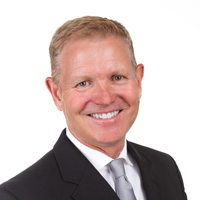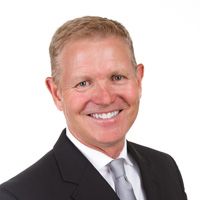4 Things Financial Advisers Hear That Give Them Chills
Overconfident clients say the scariest things about the stock market sometimes. If they're not careful, "irrational exuberance" could trick them out of their retirement treats."

Profit and prosper with the best of Kiplinger's advice on investing, taxes, retirement, personal finance and much more. Delivered daily. Enter your email in the box and click Sign Me Up.
You are now subscribed
Your newsletter sign-up was successful
Want to add more newsletters?

Delivered daily
Kiplinger Today
Profit and prosper with the best of Kiplinger's advice on investing, taxes, retirement, personal finance and much more delivered daily. Smart money moves start here.

Sent five days a week
Kiplinger A Step Ahead
Get practical help to make better financial decisions in your everyday life, from spending to savings on top deals.

Delivered daily
Kiplinger Closing Bell
Get today's biggest financial and investing headlines delivered to your inbox every day the U.S. stock market is open.

Sent twice a week
Kiplinger Adviser Intel
Financial pros across the country share best practices and fresh tactics to preserve and grow your wealth.

Delivered weekly
Kiplinger Tax Tips
Trim your federal and state tax bills with practical tax-planning and tax-cutting strategies.

Sent twice a week
Kiplinger Retirement Tips
Your twice-a-week guide to planning and enjoying a financially secure and richly rewarding retirement

Sent bimonthly.
Kiplinger Adviser Angle
Insights for advisers, wealth managers and other financial professionals.

Sent twice a week
Kiplinger Investing Weekly
Your twice-a-week roundup of promising stocks, funds, companies and industries you should consider, ones you should avoid, and why.

Sent weekly for six weeks
Kiplinger Invest for Retirement
Your step-by-step six-part series on how to invest for retirement, from devising a successful strategy to exactly which investments to choose.
Whenever somebody comes out with a new list of the Top 10 Scariest Things Ever — usually just in time for Halloween — you see the same old stuff. Death. Clowns. Spiders. Heights.
I never find retirement planning on those lists, which is kind of surprising, considering that most people seem so determined to avoid it — even those who hope to leave their jobs in the next few years.
You may hear your neighbor brag about the growing fortune in his 401(k). Or a co-worker might talk endlessly about the house she wants to build near the beach someday. But you seldom hear anyone mention having a comprehensive plan in place to meet their goals. Or how, exactly, they expect to have enough money to live comfortably for 20 years or more without a paycheck.
From just $107.88 $24.99 for Kiplinger Personal Finance
Become a smarter, better informed investor. Subscribe from just $107.88 $24.99, plus get up to 4 Special Issues

Sign up for Kiplinger’s Free Newsletters
Profit and prosper with the best of expert advice on investing, taxes, retirement, personal finance and more - straight to your e-mail.
Profit and prosper with the best of expert advice - straight to your e-mail.
Now that’s scary.
Indeed, financial advisers hear things every day that give us chills — from clients, prospective clients and people on the street. Here are a few:
- “I don’t have a plan, and I don’t need one. The way things are going, I’ll be fine.” If only the market could keep going up and up and up — then every investor would be fine (and my job would be a lot easier). Unfortunately, it doesn’t work that way. If the market drops when you’re close to or in retirement, you won’t have time to recoup your losses the way you could when you were working, and a bear market could significantly impact your nest egg. Think you can time the market? Probably not. History shows us time and again that emotions get the better of people, and fear can lead to inertia or panic selling.
- “I have a plan, but I’m not going to follow it. I want to make more money!” This time, the emotion is greed — and greed is not good. When someone who comes to our office has more than enough money to retire with the lifestyle they want, we’ll usually talk with them about shifting to more conservative products, annuities, for example. That means their portfolio isn’t 100% correlated to the market — and they know it. But then they see the news or talk to a buddy and hear about returns of 7% or more, and they want to know why that isn’t happening for them. The answer, of course, is that if you get big returns, you also could see big losses — and in retirement, when you’re using that money to live on, you can’t afford to go down 20% or more. You have to stick to the fundamentals of your plan; you can’t chase returns anymore.
- “Why do you keep talking to me about risk? I’m doing great.” Retirement planning is more about managing risk than returns (see above), so that’s where most financial advisers who specialize in retirement put their attention. We know the market can overvalue things sometimes, which makes discipline key. Our job is to make sure that if there is a pullback, a correction or a crash, you still have money. When you’re working, you can focus all you want on accumulation, but in retirement, your No. 1 priority should be preservation.
- “I’m just going to stick with the old retirement-planning rules of thumb. It worked for my parents, and it will work for me.” Those old rules — the 4% withdrawal rule, the 60% stocks/40% bonds rule, etc., were developed at a different time, when people didn’t live as long, our economy wasn’t global, the news wasn’t 24/7 and the markets didn’t take the big swings we see today. In a market like we’ve experienced for the past seven years, you could probably make anything work. But those rules have their limits — they always have — and every investor should have a plan designed for his or her individual needs and goals.
Back in 1996, then-Fed Chair Alan Greenspan coined the term “irrational exuberance” during a speech in which he cautioned that the market might be overvalued and there could be consequences. In 2000, Nobel Prize-winning economist Robert Shiller made the term the title of a book and alerted readers to the possibility of an upcoming tech crisis. He was right.
In 2005, Shiller updated that book and warned investors about a housing bubble. Right again.
His third edition, published in 2015, says “irrational exuberance” has only increased since the last financial crisis. And Greenspan used the term again in August, in an interview with CNBC’s Squawk Box about today’s market environment and the three-decades-long bond bull market.
Don’t let the current market euphoria mask the threat to your retirement.
I know it’s tempting to overindulge when the market is being so generous with its treats. But remember, it’s full of tricks, too. If you’re close to or in retirement, it’s best to err on the side of caution.
Kim Franke-Folstad contributed to this article.
Securities offered through GF Investment Services, LLC. Member FINRA/SIPC. Investment advisory services offered through Global Financial Private Capital, LLC.
Any comments regarding safe and secure investments, and guaranteed income streams refer only to fixed insurance products. They do not refer, in any way to securities or investments advisory products. Fixed insurance and annuity product guarantees are subject to the claims-paying ability of the issuing company and are not offered by Global Financial Capital. Information is not intended to provide specific legal or tax advice.
Profit and prosper with the best of Kiplinger's advice on investing, taxes, retirement, personal finance and much more. Delivered daily. Enter your email in the box and click Sign Me Up.

Raymond Edwin (Ed) Whitaker is an investment adviser representative and founder of Tremont First Financial Services. He is licensed to offer a wide range of financial and retirement planning solutions. In 2014, he won the title of Illinois Senior State Amateur Golfer.
-
 Dow Leads in Mixed Session on Amgen Earnings: Stock Market Today
Dow Leads in Mixed Session on Amgen Earnings: Stock Market TodayThe rest of Wall Street struggled as Advanced Micro Devices earnings caused a chip-stock sell-off.
-
 How to Watch the 2026 Winter Olympics Without Overpaying
How to Watch the 2026 Winter Olympics Without OverpayingHere’s how to stream the 2026 Winter Olympics live, including low-cost viewing options, Peacock access and ways to catch your favorite athletes and events from anywhere.
-
 Here’s How to Stream the Super Bowl for Less
Here’s How to Stream the Super Bowl for LessWe'll show you the least expensive ways to stream football's biggest event.
-
 How to Add a Pet Trust to Your Estate Plan: Don't Leave Your Best Friend to Chance
How to Add a Pet Trust to Your Estate Plan: Don't Leave Your Best Friend to ChanceAdding a pet trust to your estate plan can ensure your pets are properly looked after when you're no longer able to care for them. This is how to go about it.
-
 Want to Avoid Leaving Chaos in Your Wake? Don't Leave Behind an Outdated Estate Plan
Want to Avoid Leaving Chaos in Your Wake? Don't Leave Behind an Outdated Estate PlanAn outdated or incomplete estate plan could cause confusion for those handling your affairs at a difficult time. This guide highlights what to update and when.
-
 I'm a Financial Adviser: This Is Why I Became an Advocate for Fee-Only Financial Advice
I'm a Financial Adviser: This Is Why I Became an Advocate for Fee-Only Financial AdviceCan financial advisers who earn commissions on product sales give clients the best advice? For one professional, changing track was the clear choice.
-
 I Met With 100-Plus Advisers to Develop This Road Map for Adopting AI
I Met With 100-Plus Advisers to Develop This Road Map for Adopting AIFor financial advisers eager to embrace AI but unsure where to start, this road map will help you integrate the right tools and safeguards into your work.
-
 The Referral Revolution: How to Grow Your Business With Trust
The Referral Revolution: How to Grow Your Business With TrustYou can attract ideal clients by focusing on value and leveraging your current relationships to create a referral-based practice.
-
 This Is How You Can Land a Job You'll Love
This Is How You Can Land a Job You'll Love"Work How You Are Wired" leads job seekers on a journey of self-discovery that could help them snag the job of their dreams.
-
 65 or Older? Cut Your Tax Bill Before the Clock Runs Out
65 or Older? Cut Your Tax Bill Before the Clock Runs OutThanks to the OBBBA, you may be able to trim your tax bill by as much as $14,000. But you'll need to act soon, as not all of the provisions are permanent.
-
 The Key to a Successful Transition When Selling Your Business: Start the Process Sooner Than You Think You Need To
The Key to a Successful Transition When Selling Your Business: Start the Process Sooner Than You Think You Need ToWay before selling your business, you can align tax strategy, estate planning, family priorities and investment decisions to create flexibility.
